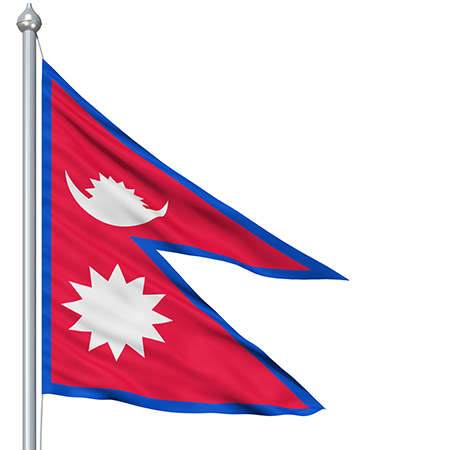At present, Nepal is governed under the Interim Constitution of Nepal, 2007, which came into force on 15 January, 2007, replacing the earlier Constitution of the Kingdom of Nepal, 1990. The Interim Constitution was supposed to facilitate Nepal’s constitutional transformation process that started with the people’s movement against the Monarchy in April 2006.
 The Interim Constitution provided for a Constituent Assembly, which was expected to prepare Nepal’s regular constitution. However, due to several delays, this Constituent Assembly could not complete this work. Ultimately, on May 28, 2012, Prime Minister Baburam Bhattarai dissolved the Constituent Assembly. Subsequently, the second Constituent Assembly was elected on November 19, 2013. Now, after several delays, on Sunday, 13 September 2015, Nepal finally entered the final stage of promulgating a new Constitution as the clause-wise discussion on the Revised Bill of the proposed constitution ended at the Constituent Assembly with top leaders of the three major political parties participating.
The Interim Constitution provided for a Constituent Assembly, which was expected to prepare Nepal’s regular constitution. However, due to several delays, this Constituent Assembly could not complete this work. Ultimately, on May 28, 2012, Prime Minister Baburam Bhattarai dissolved the Constituent Assembly. Subsequently, the second Constituent Assembly was elected on November 19, 2013. Now, after several delays, on Sunday, 13 September 2015, Nepal finally entered the final stage of promulgating a new Constitution as the clause-wise discussion on the Revised Bill of the proposed constitution ended at the Constituent Assembly with top leaders of the three major political parties participating.
So, the countdown to the process of enacting a new Constitution has begun.
The top leaders of the three parties taking part in the discussion were Prime Minister — and Nepali Congress president — Sushil Koirala, CPN-UML chairman K.P. Sharma Oli and UCPN-Maoist chairman Pushpa Kamal Dahal. The process commenced on Sunday (13 September) evening after Nepal’s major political parties waited for two days for the agitating minor political groups to join the constitution-drafting process.
But repeated talks between the agitating Madhesis and the Tharu community from Nepal’s Terai plains failed prompting the major parties to move ahead with the long delayed process.
Political leaders said it may take the entire night for the voting to endorse the new constitution. If the constitution is approved by the CA, Nepal President Ram Baran Yadav will authenticate the new constitution in a special ceremony.
Political parties based in the Himalayan nation’s Terai region have been agitating since several months against a seven-province model suggested in a federal constitution and seeking a recall of the Nepal Army from the riot-hit areas.
As of Sunday, 40 people have been killed since last one month in protests against the suggested seven-province model.
Prime Minister Sushil Koirala has said that the major political parties are in their final efforts to promulgate a new constitution with federalism, republic, democracy and inclusion as the guiding principles.
Taking part in the clause-wise deliberations on the amended Bill of the Constitution of Nepal, 2072 at the Constituent Assembly on Sunday, Koirala said: “We will succeed in promulgating the new constitution as we have earlier succeeded in resolving problems including through the comprehensive peace accord in the past.”
As mentioned above, Nepal held two Constituent Assembly elections in 2008 and 2013. The first assembly was dissolved without achieving any progress in its assigned task. [With inputs from IANS.]

